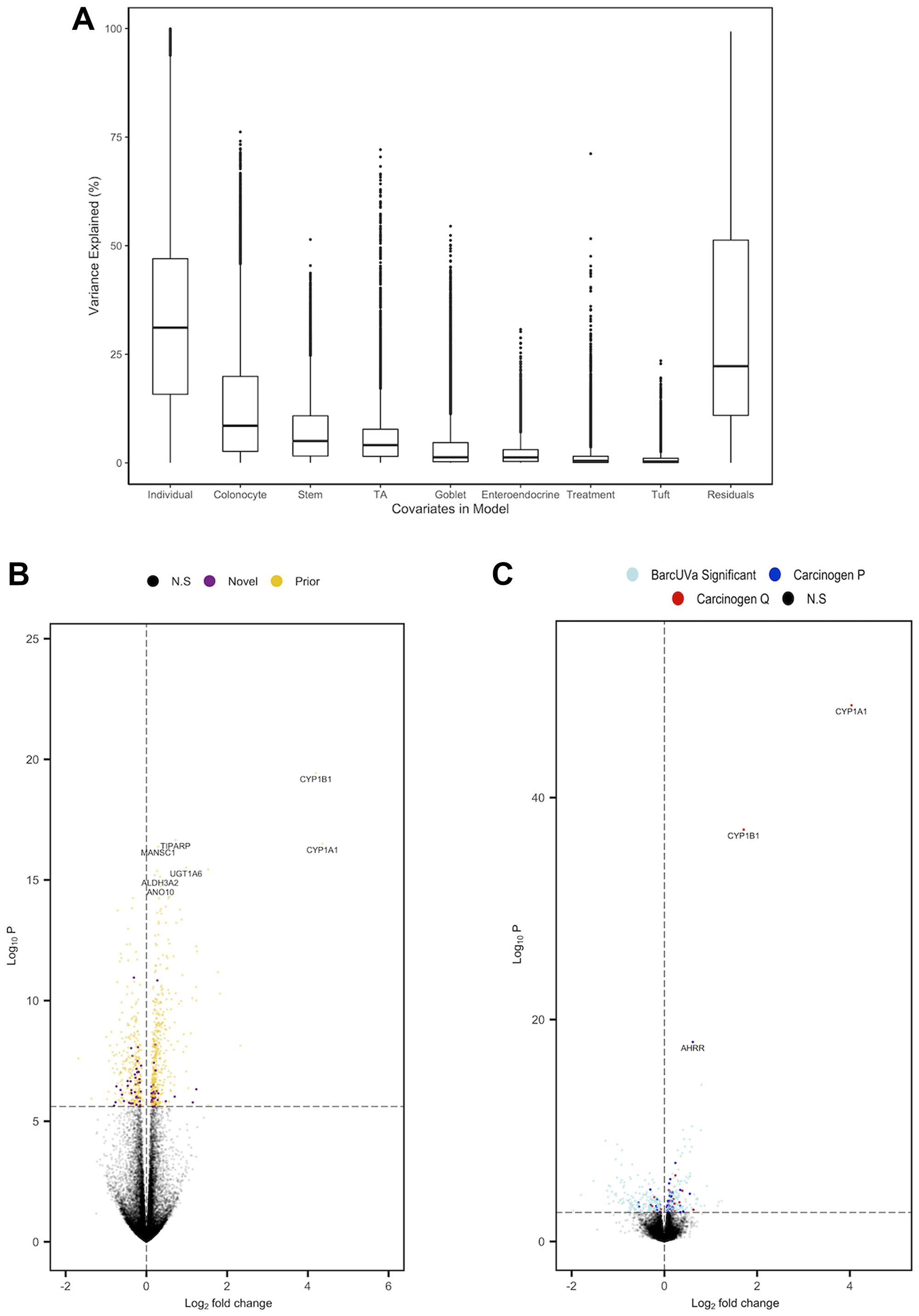Oncotarget published "Novel insights into the molecular mechanisms underlying risk of colorectal cancer from smoking and red/processed meat carcinogens by modeling exposure in normal colon organoids" which reported that Most research has focused on studies of normal colon biopsies in epidemiologic studies or treatment of CRC cell lines in vitro.
In an attempt to address some of these limitations, these authors performed a 24-hour treatment of a representative carcinogens cocktail in 37 independent organoid lines derived from normal colon biopsies. Machine learning algorithms were applied to bulk RNA-sequencing and revealed cellular composition changes in colon organoids.
This Oncotarget study helps to better define the molecular effects of representative carcinogens from smoking and red/processed meat in normal colon epithelial cells and in the etiology of the MSI-H subtype of CRC, and suggests an overlap between molecular mechanisms involved in inherited and environmental CRC risk.
This Oncotarget study helps to better define the molecular effects of representative carcinogens from smoking and red/processed meat in normal colon epithelial cells and in the etiology of the MSI-H subtype of CRC
Dr. Graham Casey from The University of Virginia said, "Carcinogens in tobacco smoke and red/processed meat are known risk factors for colorectal cancer (CRC) and, tobacco smoke has been associated with tumors characterized by high microsatellite instability (MSI-H)"
The molecular mechanisms underlying the relationship between these carcinogens and CRC are poorly understood. Elucidating these molecular mechanisms represents an important public health challenge.
Tobacco smoke and red/processed meat contain many known and potential carcinogens. Studies in CRC cell lines have demonstrated important relationships between MelQx, PhIP, BaP, NDEA and oncogenic pathways, but the impact of these carcinogens on normal colon epithelial cells is not known.
Transcriptomic profiling of human colon biopsies has previously revealed gene expression differences associated with smoking and red/processed meat; however, these studies rely on the accuracy of subject reporting or were performed in patients who had already developed colon cancer.

Figure 2: Summary of analysis of carcinogen exposure of organoids following adjustment for cell composition. (A) Boxplot to show the proportion of gene-wise variance explained by each covariate within the mixed-effects regression model. (B) Volcano plot of carcinogen DEGs. 'Prior' and 'Novel' denote genes that were and were not previously identified in original analysis respectively (C) Volcano plot of BarcUVa-Seq analysis. DEGs only identified in BarcUVa-Seq are denoted light blue, while genes that were also present nominally (dark blue) and following Bonferroni correction (red) in carcinogen analysis are also shown. N.S denotes genes that were not significant.
These authors identified differences in gene expression following a 24hr exposure of colon organoids to a single dosing of a carcinogens cocktail that included MelQx, PhIP, BaP, and NDEA. They observed a robust transcriptomic response in carcinogens exposed colon organoids that revealed selective changes in cell composition.
The Casey Research Team concluded in their Oncotarget Research Output, "we identified extensive gene expression and cellular composition differences following exposure of normal colon organoids to carcinogens commonly found in tobacco smoke and/or red/processed meat. We provide data suggesting an overlap between genes implicated in inherited and environmental CRC risk, that may help accelerate discovery of biological mechanisms underlying risk. Through WGCNA, we also identified a potential molecular mechanism underlying the relationship between these carcinogens and MSI-H CRC etiology. These discoveries provide novel insights into CRC etiology and reveal several avenues for future research."
Sign up for free Altmetric alerts about this article
DOI - https://doi.org/10.18632/oncotarget.28058
Full text - https://www.oncotarget.com/article/28058/text/
Correspondence to - Graham Casey - [email protected]
Keywords - colon organoids, microsatellite instability, smoking, single-cell deconvolution, weighted gene co-expression network analysis
About Oncotarget
Oncotarget is a biweekly, peer-reviewed, open access biomedical journal covering research on all aspects of oncology.
To learn more about Oncotarget, please visit https://www.oncotarget.com or connect with:
SoundCloud - https://soundcloud.com/oncotarget
Facebook - https://www.facebook.com/Oncotarget/
Twitter - https://twitter.com/oncotarget
LinkedIn - https://www.linkedin.com/company/oncotarget
Pinterest - https://www.pinterest.com/oncotarget/
Reddit - https://www.reddit.com/user/Oncotarget/
Oncotarget is published by Impact Journals, LLC please visit https://www.ImpactJournals.com or connect with @ImpactJrnls
Media Contact
[email protected]
18009220957x105



